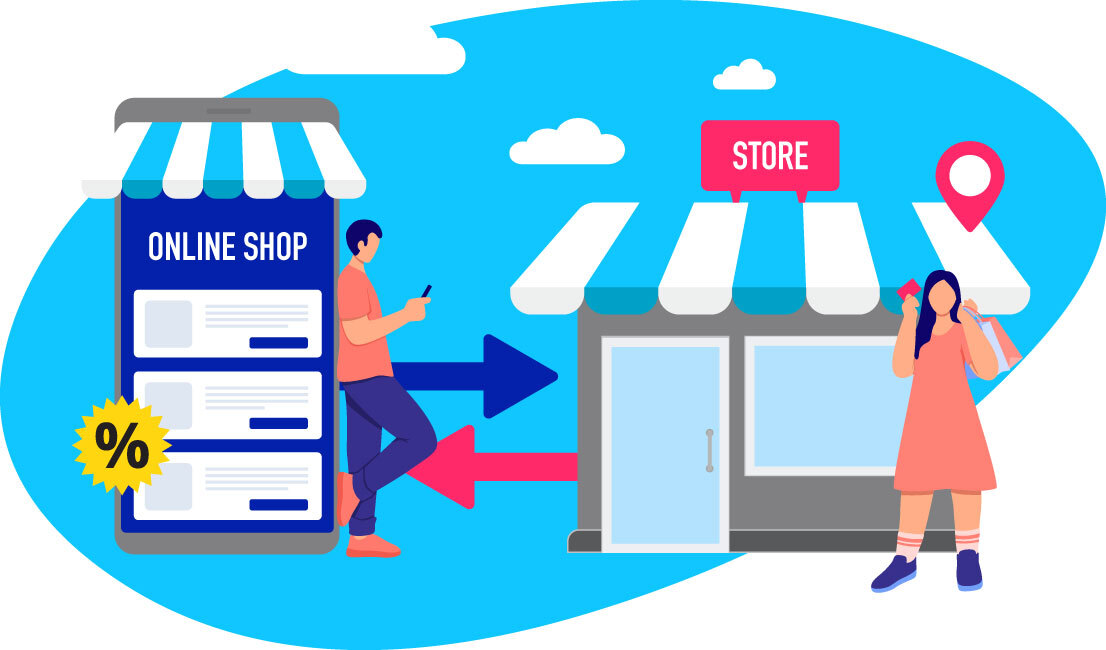3 min read
옴니채널 마케팅이란 무엇인가?
옴니채널 마케팅은 고객이 구매 과정을 거치면서 브랜딩, 메시징, 온라인 및 오프라인 접점을 원활하게 통합하여 더욱 강력한 고객 경험을 제공하는 방식입니다. 이는 고객 중심 접근법으로, 모든 채널에서 일관성을 보장하여 고객이 자신의 조건에 맞게 브랜드와 상호작용할 수 있게 합니다.
여러 채널에 독립적으로 콘텐츠를 배포하는 데 중점을 두는 멀티채널 마케팅과 달리, 옴니채널 마케팅은 채널에 관계없이 이전 상호작용을 반영하는 일관된 경험을 만듭니다. 이 접근 방식은 고객이 한 채널에서 여정을 시작하고 구매 결정을 향해 진행하면서 다른 채널로 이동할 수 있음을 인식합니다.
💡 Read More: Customer Relationship Management (CRM) & Customer Journey Map란 무엇인가?
디지털 시대의 옴니채널의 중요성
고객이 항상 연결되어 있는 시대에 옴니채널 마케팅은 여러 이유로 중요해졌습니다:
- 향상된 고객 경험: 모든 접점에서 일관된 경험을 제공함으로써 기업은 고객 만족도와 충성도를 높일 수 있습니다.
- 매출 증가: 연구에 따르면 여러 접점과 상호작용하는 고객은 30% 더 가치 있는 경향이 있습니다.
- 더 나은 데이터 수집: 옴니채널 접근 방식을 통해 기업은 고객 행동과 선호도에 대한 더 포괄적인 데이터를 수집할 수 있습니다.
- 경쟁 우위: 옴니채널 전략을 성공적으로 구현하는 브랜드는 종종 경쟁이 치열한 시장에서 돋보입니다.
옴니채널 전략 구현하기
효과적인 옴니채널 전략을 만들기 위해 기업은 다음 단계를 고려해야 합니다:
- 고객 이해하기: 상세한 고객 페르소나를 개발하고 다양한 접점에 걸친 여정을 매핑합니다.
- 채널 통합하기: 소셜 미디어부터 매장 내 경험까지 모든 채널이 원활하게 작동하도록 합니다.
- 기술에 투자하기: 고객 관계 관리(CRM) 시스템과 마케팅 자동화 도구를 활용하여 데이터를 관리하고 상호작용을 개인화합니다.
- 개인화에 집중하기: 수집된 데이터를 사용하여 개별 고객에게 맞춤형 메시지와 제안을 제공합니다.
- 일관성 유지하기: 모든 채널에서 브랜드 음성, 메시징 및 시각적 정체성이 일관되게 유지되도록 합니다.
옴니채널 마케팅의 실제 사례
여러 브랜드가 옴니채널 전략을 성공적으로 구현했습니다:
- 스타벅스: 이 커피 거인의 리워드 앱을 통해 고객은 휴대폰, 웹사이트 또는 매장에서 카드 잔액을 확인하고 충전할 수 있습니다. 카드나 프로필의 모든 변경 사항은 실시간으로 모든 채널에서 업데이트됩니다.
- 디즈니: 모바일 반응형 웹사이트부터 공원 계획 앱까지, 디즈니는 방문객에게 원활한 경험을 제공합니다. 매직밴드 프로그램을 통해 게스트는 호텔 객실을 열고 음식과 상품을 구매할 수도 있습니다.
- 세포라: 이 뷰티 리테일러의 "뷰티 백" 계정을 통해 고객은 가상으로 메이크업을 시도해보고, 좋아하는 아이템을 저장하고, 온라인이나 매장에서 구매할 수 있습니다.
- 뱅크 오브 아메리카: 고객은 은행의 웹사이트, 모바일 앱, ATM 및 실제 지점에서 수표를 입금하고, 약속을 잡고, 지출을 추적할 수 있습니다.
옴니채널 마케팅은 디지털 시대의 고객 참여의 미래를 대표합니다. 모든 접점에서 원활하고 통합된 경험을 제공함으로써 기업은 고객 만족도를 높이고, 매출을 증가시키며, 경쟁 우위를 확보할 수 있습니다.
애피어의 지능형 솔루션으로 마케팅 게임을 높이세요
애피어는 디지털 마케팅의 AI 혁명의 최전선에 있습니다. 우리의 지능형 도구 제품군은 기업이 더 스마트한 결정을 내리고, 광고 지출을 최적화하며, 대규모로 개인화된 경험을 제공할 수 있도록 지원합니다.
2024년 현재 Appier는 금융부터 소매업에 이르는 다양한 산업 분야에서 전 세계적으로 1,700개 이상의 고객에게 서비스를 제공하고 있습니다. Appier의 주요 고객 명단에는 클라란스 (Clarins), 까르푸 (Carrefour), 피자헛(Pizza Hut), 버거킹 (Burger King), 토요타 (Toyota), BMW Taiwan (Pan German Motors) 케이스 스터디 와 같은 유명 브랜드가 포함되어 있습니다.
%20(28).png?width=1200&height=630&name=BLOG_Banner%20(Naomi)%20(28).png)

%20(24).png?width=1200&height=630&name=BLOG_Banner%20(Naomi)%20(24).png)
.png?width=1200&height=630&name=%E7%B6%B2%E7%B4%85%E5%B0%88%E6%AC%84banner_new%20(3).png)